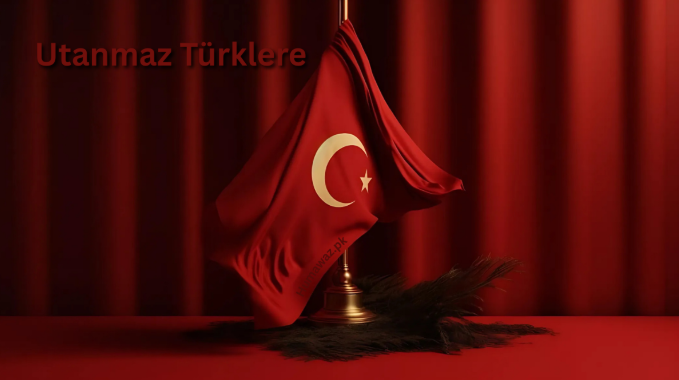Utanmaz türklere is a phrase many people talk about online and in daily life. It means “shameless Turks” in English, and people use it to describe some behaviors they don’t like. But it’s important to understand why people use this phrase and what it really means. Sometimes, people say things without thinking, or they get angry and use strong words. We need to learn more about the real reasons behind this phrase to avoid misunderstandings. When we understand each other better, it helps to stop hate and build respect. So, in this blog, we will talk about utanmaz türklere carefully and kindly.
Many people use the phrase utanmaz türklere to show their frustration with some actions or behavior they see. But it is not good to judge all people by just one or two examples. Everyone is different, and no group should be called shameless. Sometimes, words like this make problems bigger instead of solving them. It’s better to talk calmly and listen to each other. When we learn about different views and feelings, it helps us get along well. This blog will help you understand the phrase better, see why people use it, and learn how to stay kind and fair. Let’s explore utanmaz türklere with an open heart and clear mind.
What Does Utanmaz Türklere Really Mean
The phrase utanmaz türklere means “shameless Turks” in English. It is often used by some people to describe behavior they find rude or disrespectful. However, the phrase can be very strong and hurtful. It does not describe all Turkish people, just a small group that someone may be upset with. Using such words can create misunderstandings and spread anger. It’s important to remember that calling a whole group “shameless” is unfair. Many people use this phrase without thinking about its effect. Learning the true meaning helps us see why it can be harmful. We should be careful with words and try to understand others with kindness.
Why Do People Use the Phrase Utanmaz Türklere
People often say utanmaz türklere when they feel angry or disappointed. They may have seen or heard about actions they do not like. Sometimes, it is used to show strong emotions or frustration. But this phrase can also come from misunderstandings or wrong ideas about others. When people feel hurt or treated unfairly, they might use harsh words to express themselves. Social media and news can make these feelings stronger by sharing bad stories fast. Still, using this phrase can make problems worse instead of fixing them. It’s better to talk calmly and understand why someone feels upset. This helps us find peaceful ways to solve problems.
Common Misunderstandings About Utanmaz Türklere
There are many misunderstandings about the phrase utanmaz türklere. Some people think it means all Turkish people are bad, but that is not true. The phrase only talks about some behavior, not an entire group. Sometimes, people use it without knowing its full meaning or the feelings it may hurt. Also, people from different cultures may understand this phrase in different ways. This can cause confusion and arguments. It is important to ask questions and learn before judging others. When we understand the true meaning, we avoid spreading wrong ideas. This helps create respect and peace between people.
How Words Like Utanmaz Türklere Can Hurt Feelings
Words like utanmaz türklere can hurt people’s feelings deeply. When someone is called shameless, they may feel sad, angry, or ashamed. These words can make people feel unfairly judged or rejected. Hurtful words often cause more problems, such as fights or distance between friends and families. Even if someone uses this phrase to show frustration, it can still cause pain. It is important to choose words that help and support others instead of hurting them. Kind words can heal and bring people closer. We should always try to speak with respect and understand how words affect others.
Stories Behind the Phrase Utanmaz Türklere
Many stories explain why some people use the phrase utanmaz türklere. Sometimes, it comes from bad experiences with others who acted badly. People share these stories to explain their feelings and frustrations. Other times, the phrase is used in jokes or as insults without thinking about its meaning. Social media spreads these stories quickly, making the phrase more common. But it is important to remember that these stories do not represent everyone. Hearing different stories helps us understand why people feel this way. When we listen carefully, we learn to be kinder and not use hurtful words.
How to Respond When You Hear Utanmaz Türklere
When you hear the phrase utanmaz türklere, it is important to stay calm. Getting angry or upset may make the situation worse. Instead, try to understand why the person said it and what they feel. You can ask questions to learn more and explain your view kindly. It helps to remind others that words can hurt and we should be respectful. If the phrase is used to hurt you, do not respond with more hurt. Instead, show kindness and patience. Talking calmly helps everyone feel heard and respected. Using gentle words can change anger into understanding and peace.
Conclusion
Understanding the phrase utanmaz türklere helps us see why some words can hurt others. It is not nice to call people shameless because everyone makes mistakes. When we use kind words, we can solve problems better and make friends. Talking with respect is always the best choice.
Remember, words have power. Using them wisely can bring peace and help people understand each other. Let’s try to be kind and careful with what we say, so no one feels sad or angry.
FAQs
Q: What does utanmaz türklere mean?
A: It means “shameless Turks” and is used to describe some bad behavior.
Q: Is it okay to use utanmaz türklere?
A: No, because it can hurt people’s feelings and make problems worse.
Q: How can I respond if someone says utanmaz türklere?
A: Stay calm, be kind, and try to understand why they said it. Talk nicely to solve the problem.






